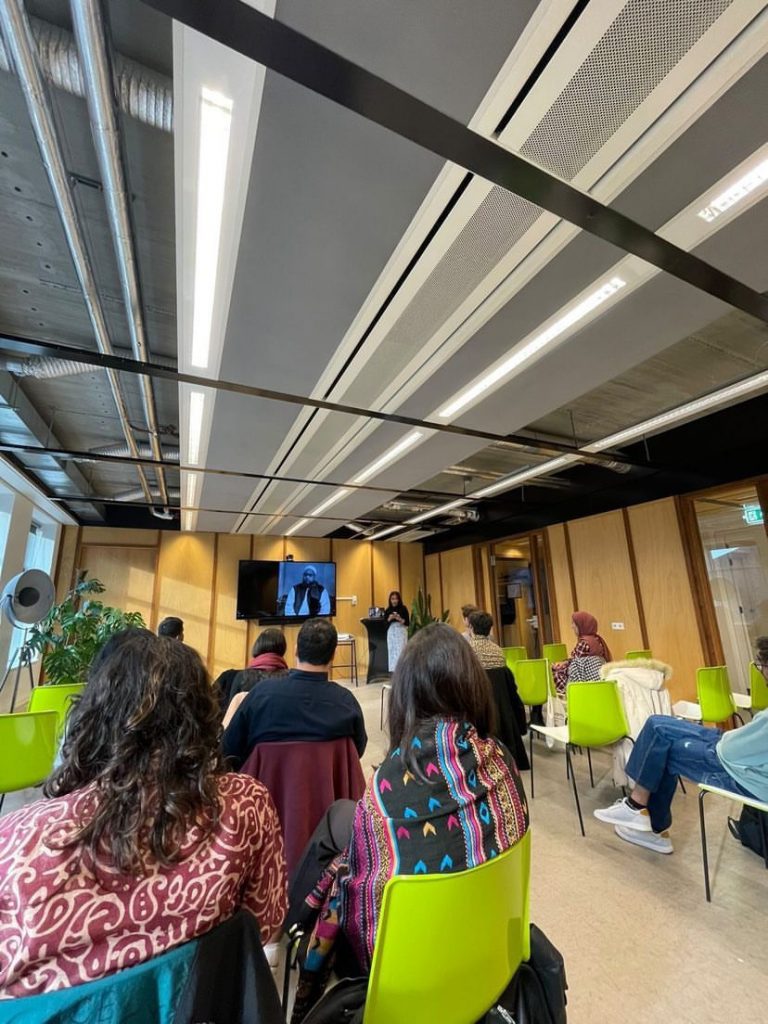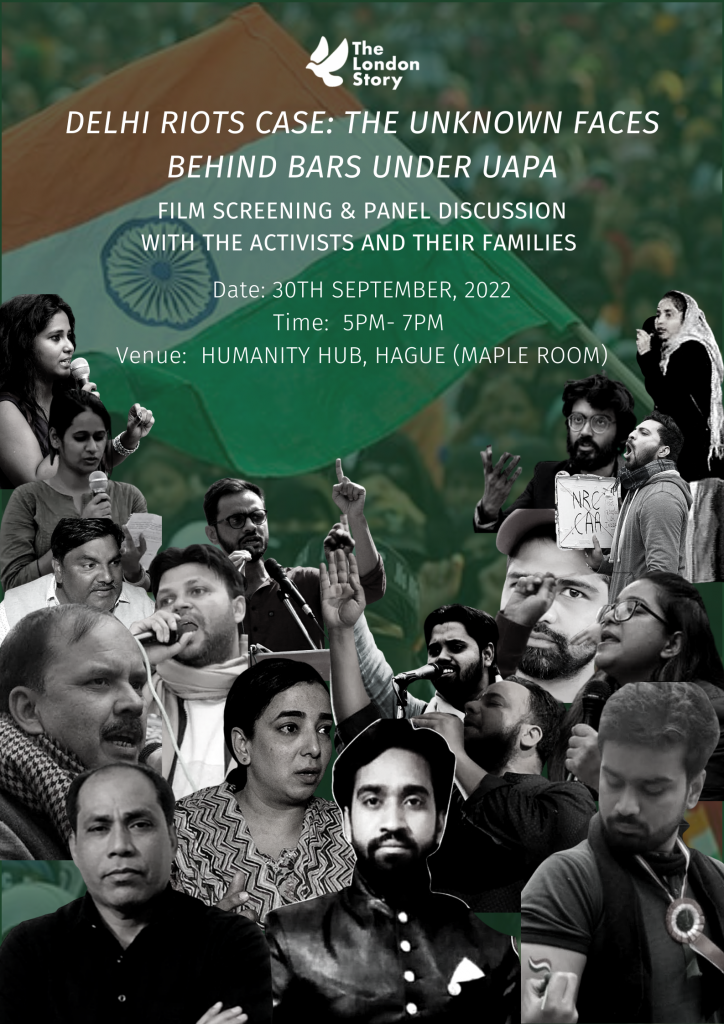Press release
The Hague, Friday, 30 September 2022
Two years after the protests against the discriminatory Citizenship Amendment Act (CAA) passed in India, international public condemnation continues. At an event on September 30 in The Hague, diaspora deplored and commemorated the continued incarceration without trial of twelve students and activists, all of them Muslim, after they were framed for communal riots in North East Delhi which left 53 dead.
While the Delhi Minorities Commission’s fact-finding report documents riot mobilisation by Hindu extremist actors leading up to the riots, the Delhi police has not launched an investigation into this evidence. Rather, its main chargesheet, which runs into 17,000 pages, alleges that a core group of 18 students and activists had “masterminded” a conspiracy to defame India by engineering violence between Hindus and Muslims. While the Delhi High Court noted that the submissions of the State are “based upon inferences drawn by the prosecuting agency and not upon factual allegations”, twelve activists, all Muslim, remain in detention under the stringent Unlawful Activities Prevention Act (UAPA)
At an event at the Humanity Hub in The Hague, the “city of peace and justice”, the diaspora-led think tank The London Story organised a public screening of the documentary Delhi Riots Case: The Unknown Faces Behind Bars Under UAPA. The documentary, produced by The Quint, shares the stories of protestors and their family members. Following the screening, The London Story invited family members of the incarcerated activists to speak to the movie audience remotely, and facilitated a conversation on the challenges faced in seeking accountability.
Bail has been repeatedly denied to the detained activists, even during the peak of the COVID pandemic. Additionally, the Supreme Court of India has delayed hearing the over 200 petitions challenging the constitutional validity of the CAA, and in September 2022 announced it would finally consider them after they lay pending for three years. The CAA adds a religious criterion to citizenship, and in combination with the National Registry of Citizens is seen as risking mass statelessness. The Office of the United Nations High Commissioner for Human Rights called the CAA “fundamentally discriminatory” and incompatible with India’s international human rights obligations.
The screening is part of a series of global solidarity events in Australia, South Africa, Europe, Canada, Japan and the USA organized by diaspora groups, including South Asia Solidarity Group (UK), The Humanism Project (Australia), Indian American Muslim Council (USA), India Civil Watch (USA), Hindus4HumanRights (USA), InSAF (USA), People Against Apartheid and Fascism (South Africa), Indian Solidarity Germany, Aotearoa Alliance of Progressive Indians (New Zealand), and Scottish Indians for Justice.

Resources:
- https://www.humanityhub.net/calendar/the-london-story-movie-screening-panel-discussion/
- https://www.eventbrite.com/e/delhi-riots-case-the-unknown-faces-behind-bars-under-uapa-tickets-427052253787
- https://thelondonstory.org/2020/09/17/joint-statement-condemning-fir-59-2020/
- https://www.dw.com/en/indian-diaspora-in-germany-deplores-fascist-citizenship-act/a-52134412
- https://www.ndtv.com/india-news/delhi-riots-15-people-named-in-20-000-page-chargesheet-filed-by-police-2296368
- https://indiankanoon.org/doc/73074664/



